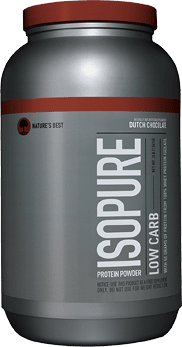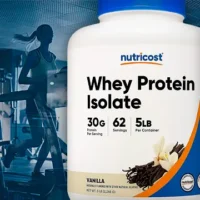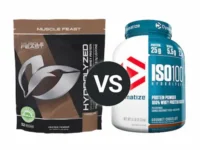Knowledge BaseYou're Questions Answered
Is whey protein low carb?
One of the key considerations for people following low-carbohydrate or ketogenic diets is whether whey protein qualifies as a low-carb option. The answer depends on the specific type of whey protein and how it has been processed.
Carbohydrate Content by Type of Whey Protein
1. Whey Protein Isolate (WPI)
Whey protein isolate is the most refined form of whey, processed to remove most of the fat and lactose (milk sugar). It typically contains:
- Carbohydrate Content: Less than 1 gram of carbs per 30g scoop
- Suitability: Ideal for low-carb and ketogenic diets due to its minimal carbohydrate content1
2. Whey Protein Concentrate (WPC)
Whey protein concentrate is less processed and retains more of the natural components of whey, including some lactose. It typically contains:
- Carbohydrate Content: Around 2 to 5 grams of carbs per 30g scoop
- Suitability: Still considered relatively low in carbs but may be less ideal for strict keto diets2
3. Whey Protein Hydrolysate (WPH)
This is a pre-digested form of whey protein that has undergone hydrolysis for faster absorption. Its carb content is similar to isolate, depending on formulation:
- Carbohydrate Content: Usually less than 2 grams per 30g scoop
- Suitability: Suitable for low-carb diets, especially post-workout
Flavored vs. Unflavored Products
One important factor is whether the product is flavored or unflavored. Flavored whey proteins often contain sweeteners, thickeners, or other additives that can raise the carbohydrate content by a few grams per serving. If you're closely monitoring carbs, opt for unflavored or “keto-friendly” labeled whey proteins and always check the nutrition label.
So, whey protein, especially in isolate or hydrolysate form is low in carbohydrates and suitable for low-carb or ketogenic diets. Whey protein concentrate is slightly higher in carbs due to residual lactose but still fits within most moderate low-carb plans. Always read nutrition labels carefully to account for any added sugars or ingredients that may affect total carb content.
- Hoffman, J. R., & Falvo, M. J. (2004). Protein–which is best? Journal of Sports Science & Medicine, 3(3), 118-130.
- Phillips, S. M., & Van Loon, L. J. C. (2011). Dietary protein for athletes: From requirements to optimum adaptation. Journal of Sports Sciences, 29(sup1), S29-S38.
Related Questions

Your Answer
We are a participant in the Amazon Services LLC Associates Program, an affiliate advertising program designed to provide a means for us to earn fees by linking to Amazon.com and affiliated sites.






